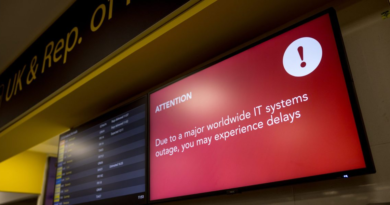Bostic guilty of breaking rules—but not insider trading: Fed watchdog
The US central bank’s internal watchdog chastised Federal Reserve Bank of Atlanta President Raphael Bostic for his previously reported violations of the Fed’s investment restrictions, but said it found no evidence that he made trades based on confidential information.
In a report dated Sept. 4 and made public Wednesday, the Fed’s Office of Inspector General in Washington confirmed that Bostic’s money manager made trades on his behalf during the Federal Open Market Committee’s so-called blackout periods and the Atlanta Fed chief failed to disclose some trades.
The IG added that the trades created an “appearance of acting on confidential FOMC information” under the FOMC blackout rule and an “appearance of a conflict of interest.”
Bostic announced in October 2022 that his investment manager had made trades during restricted periods, and that some transactions had been inadvertently omitted from his financial disclosures. Following the announcement, Fed Chair Jerome Powell asked the IG to investigate Bostic’s disclosures going back to 2017.
At the time, Bostic said he wasn’t aware of the specific trades or timing of the transactions, which were made by a third-party manager in accounts where he did not have the ability to direct investments.
The IG found from March 2018 through March 2023, 154 trades were executed on behalf of Bostic in violation of the FOMC blackout rule. A Federal Reserve spokeswoman said the Board had received the report and is reviewing it.
While acknowledging the restricted trades were executed by his manager, and without his knowledge of the exact timing, the report found Bostic was “nonetheless responsible for ensuring that all trades and investments made on his behalf complied with all applicable rules, including the provisions addressing appearance standards.”
In a statement following the report’s release, Atlanta Fed board of directors Chair Claire Lewis Arnold said the board takes “these issues seriously and the full board will meet to carefully discuss the report’s details further.”
The IG said it had closed the nearly two-year investigation and referred the matter to the Fed’s Board of Governors “for any further action as they deem appropriate.”
Following the initial revelation of his trading activity, the Atlanta Fed chief subsequently made changes to his investments, including removing his assets from unified managed accounts and ensuring no “automatic” investments would occur without his approval. He also divested from assets that are no longer allowed under trading rules that went into effect for senior Fed officials in May 2022.
Revamped Rules
The Fed revamped its ethics rules in 2021 after it was revealed that several senior officials had engaged in unusual trading activity during the onset of the pandemic in 2020 as the central bank dropped interest rates to near-zero levels and launched a suite of emergency lending programs to bolster the economy.
Then-Dallas Fed President Robert Kaplan and his Boston counterpart Eric Rosengren each announced their early retirement following the revelations, with Rosengren citing ill health.
The Fed’s IG cleared Kaplan and Rosengren of legal wrongdoing earlier this year, but chastised them for damaging public confidence in the central bank. A report released in January found that none of the trades violated federal law or regulations, but said the rules at the time were inadequate.
Prior to that, the IG had also investigated trades made by Powell and former Vice Chair Richard Clarida.
It said it did not find evidence that either had violated “laws, rules, regulations or policies related to trading activities,” though Clarida had failed to report several trades in his 2019 and 2020 financial disclosures — including fund sales and purchases shortly before a major Fed announcement in Feb. 2020 that signaled its readiness to buffer the economy from the coronavirus.
Clarida stepped down in January 2022, about two weeks before his term as a Fed governor was to expire, following the release of the findings. He told the IG the disclosure omissions were inadvertent.
(Updates with additional details from sixth paragraph.)

